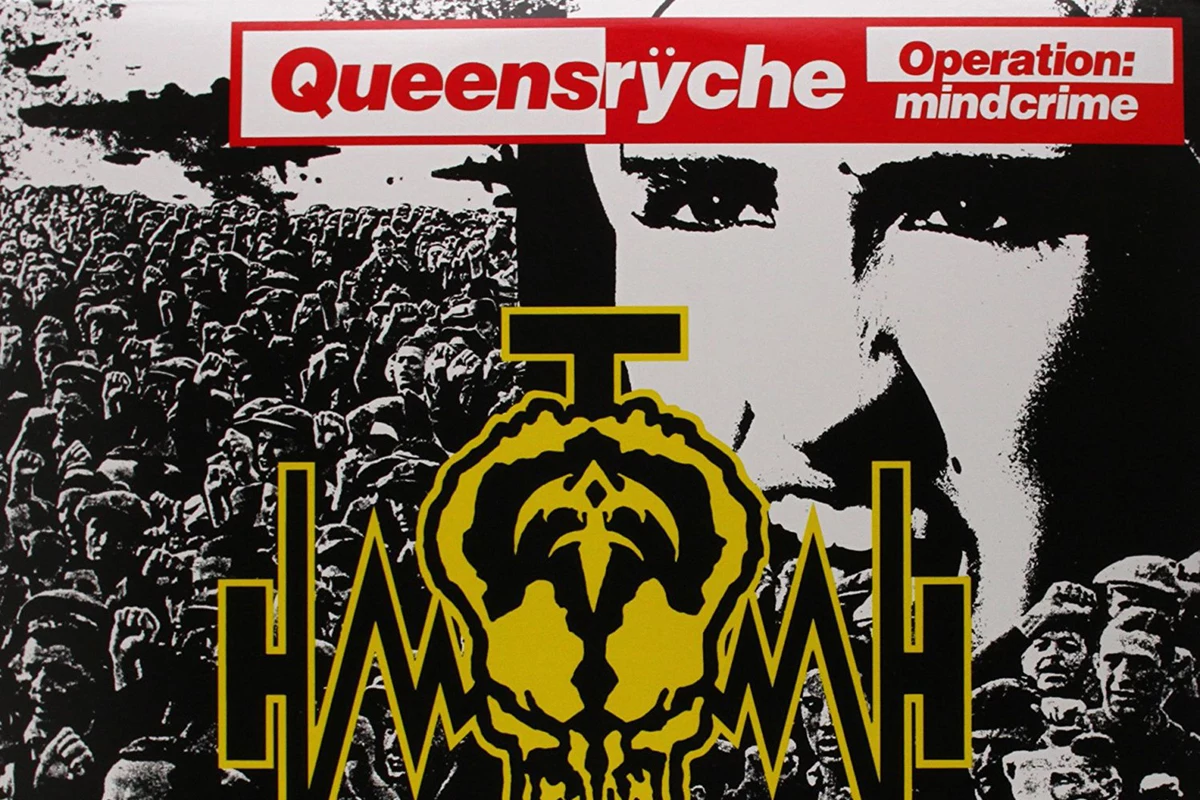Nikki loves Mary, but Nikki is a junkie and Mary is a hooker who’s become a nun. Nikki has been ordered to kill Mary by Dr. X, who runs an above-the-law subversive organisation that brainwashes people like Nikki into becoming unknowing assassins. And if Nikki doesn’t kill Mary, Dr. X will cut off Nikki’s supply of drugs.
This was the paranoid dystopian future story that underlay Queensryche’s third album, Operation: Mindcrime, and set them on the world stage when it arrived on May 3, 1988.
It wasn’t just a strong narrative that set the concept album apart from others; it was the sense of cohesive maturity that the band had achieved as a musical unit, following its uncertain straight-metal 1984 debut The Warning and 1987 follow-up, Rage for Order.
Singer Geoff Tate, guitarist and chief songwriter Chris DeGarmo, guitarist Michael Wilton, bassist Eddie Jackson and drummer Scott Rockenfield delivered a polished prog-metal work – supported by the cast for the storyline, including Pamela Moore as Sister Mary and Anthony Valentine as Dr. X.
“What I really tried to do with it was approach it from the mindset of this particular character, given his background and how he grew up,” Tate explained in 2007. “I just put myself in [Nikki’s] place and wrote from his perspective. And the perspective on the first album is really that – a guy in his 20s, which I was at the time, idealistic and discovering the process by which the world works.”
Watch Queensryche’s ‘Eyes of a Stranger’ Video
Tate noted that “we’re brought up as children to believe that the world is black and white – and the older you get, you realize that’s a complete lie, and that there’s a loose code that we’re supposed to follow but most people don’t. So it’s kind of an eye-opening experience when you realize that the way you were brought up isn’t the way that the world works.”
The album was supported by four singles: “Breaking the Silence,” “Eyes of a Stranger,” “Revolution Calling” and “I Don’t Believe in Love.” Operation: Mindcrime received positive reviews from the start and led to Queensryche supporting Metallica, Def Leppard and Guns N’ Roses on tour, but it was by no means an overnight success.
“It wasn’t really well received at the time. It sold exactly the amount that our previous album had sold,” Tate confirmed. “It kind of hit the wall sales-wise, and [the EMI record label was] happy with that. They said, ‘Okay, we have time to make another record.’ And in between the time they said that and the time we actually started making another record, we got an invitation to make a video.
“MTV called, one of the guys there was a fan, and they said if we made a video, they’d play it. So we put all of our money into making ‘Eyes of a Stranger’ and it just became a big hit,” Tate added. “Immediately the album went gold, then platinum, then double platinum, and it’s just been selling ever since.”
Watch Queensryche’s ‘I Don’t Believe in Love’ Video
The sense of cohesion lent so much to the storyline that questions were asked about the band’s own political views.
“They come up and they say … ‘What you’re talking about [in the single ‘Revolution Calling‘]? Is that happening in America right now?” DeGarmo later recalled. “‘Is this story, although it’s fictional, is this your ideas? Are you planning a subversive revolution against the government? Do you want us to be assassins for you?’
“We’re just writing about cars, man, and women and stuff,” DeGarmo added. “We’ve got nothing against right-wing conservative fascist governments that run the United States.”
Their fourth album, Empire, actually fared better in commercial terms. Still, many fans believe Operation: Mindcrime is Queensryche’s finest hour.
Using the Same Name at the Same Time
Looking back on some of the biggest band name battles.



